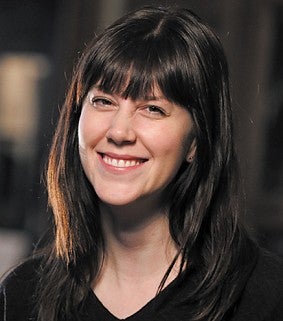Majors and Minors: Spanish, International Studies
Legal Fellow, Equal Justice Initiative

Madeline Bailey, BA '11, will never forget the way her client’s face lit up when the verdict was read. The woman was 22 years into a life sentence and had been denied parole seven times.
"She never had a good advocate, never had an attorney sit down and spend a significant amount of time with her since she began her sentence," says Bailey, valedictorian of the University of Oregon’s Robert D. Clark Honors College in 2011 and now a third-year law student at University of California at Berkeley. "Along with another Berkeley law student, I was able to help her understand what the parole board wanted to see from her. The board is very focused on making sure that a person has insight into what they have done, but no one had ever spent the time to talk with her about that before."
Bailey was able to spend considerable time with the client, helping her prepare for a hearing that eventually set her free. "It was amazing to see her have hope again," she says.
And when the woman was eventually released from a prison in California’s Central Valley, Bailey and a classmate were there to pick her up and drive her to transitional housing in the Los Angeles area.
After graduating from the UO, Bailey worked for the Prison Law Office, a Berkeley-based nonprofit that litigated Brown v. Plata, the 2011 case in which the US Supreme Court ruled that the level of prison overcrowding in California at the time was unconstitutional.
Bailey worked for the organization for two years prior to entering law school, visiting prisons with attorneys to see whether conditions were in compliance with the law. That experience inspired her interest in prisoners' rights and post-conviction advocacy. Since starting law school at Berkeley, she has worked with an Oakland-based nonprofit called UnCommon Law to help two individuals serving life sentences gain parole. (In addition to the woman described previously, Bailey served as an advocate for a man who had been sentenced to life at age 17. Upon his release, Bailey was able to see him reunited with his family.) She has also worked for the ACLU National Prison Project in Washington, DC, and several public defender offices across the country.
“Most of the people in prison should not be there, and those who are there have been failed by the system over and over again.”
Bailey traces her interest in criminal justice reform to her time at the UO. As a participant in the university’s Inside-Out Prison Exchange program, which holds classes inside the Oregon State Penitentiary, she took Professor Steven Shankman’s course "Literature and Ethics." She says it was an honor to get to know her incarcerated classmates in that particular class, and in the classes she continued to take through the program. "I’d never been in a class before where it was guaranteed that everyone would have done the reading," she recalls. "Everyone came ready to engage with the material. It was really an example of what education should be."
Bailey says the class had great discussions of Cervantes, Dostoevsky, and Emmanuel Levinas, but they also learned one another’s personal stories, which made her think critically about the criminal justice system and begin to develop her own career goals. She was later an intern with the Inside-Out program, assisting with courses held at the prison and helping run a reading group at the juvenile justice center in Eugene.
"I don’t think locking people away is ever the answer," she says. "Our society tends to ignore the reality that there are very few exceptional cases where people should be separated from the community. Most of the people in prison should not be there, and those who are there have been failed by the system over and over again."
She believes that the criminal justice system is simply broken. "People of color face incredible odds as a result of decades of racist public policy. As a society, we need to acknowledge the horrible things that have happened in the past, apologize for them, and recognize how they impact people today."
Bailey has accepted a legal fellowship at the Equal Justice Initiative (EJI) in Montgomery, Alabama, where she will begin work following graduation in May. The organization, a national leader in addressing such issues as the death penalty and juvenile incarceration, is also involved in public education around the connections between race and the justice system. "Madeline has been able to put together a coherent constellation of experiences," says geography professor Shaul Cohen, director of UO’s Inside-Out program and Bailey’s thesis advisor at the Clark Honors College.
Bailey also assisted Cohen with his research on the conflict in Northern Ireland. He notes that her impressive accomplishments as an undergraduate and in her first few years out of college suggest that she has many great things in store. "She’ll be able to choose how she wants to make a contribution," he says.
"The chance to do this sort of work is exactly why I wanted to go to law school," says Bailey. "Many of my classmates are on a different path, toward careers in corporate law. Success for me looks different. I’ve put a lot of my energy into practical experiences and into learning how to be an advocate. For me, that’s what it’s all about."
By Jonathan Graham. This story original appeared in the Summer 2016 issue of Oregon Quarterly Magazine.
June 2016
